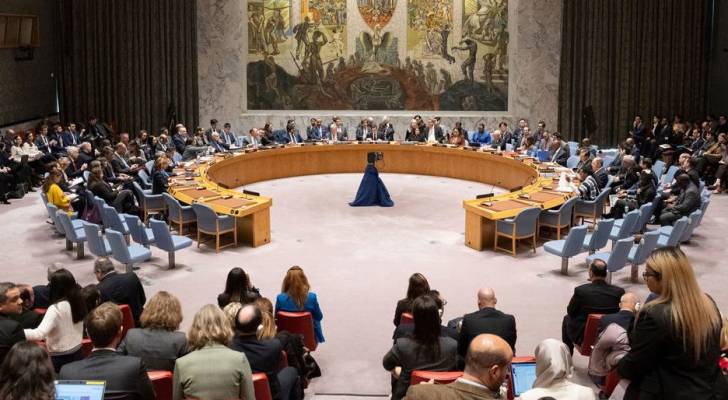EMV workshops discuss healthcare sector, future services engine
The Jordan Times
AMMAN — The Economic Modernisation Vision (EMV) workshops continued on Thursday at the Royal Hashemite Court with a focus on Jordan’s healthcare sector and the Future Services Engine, highlighting the sector’s critical role in driving economic growth, job creation, and regional development.
Launched three years ago under Royal directives, the EMV positions the healthcare sector, described as the “future services engine”, as a key pillar of national transformation.
The workshops brought together government officials, business leaders, and civil society representatives to assess the sector’s progress and define future priorities under the EMV framework.
The EMV highlights several core strengths of Jordan’s healthcare sector, including a well-established infrastructure, a highly skilled workforce, the existence of a national programme for digitising healthcare (Hakeem), and a thriving ecosystem of tech startups, particularly in the digital health space.
Jordan’s health sector also adheres to national accreditation standards, ensuring high-quality services across institutions.
The country’s healthcare infrastructure comprises more than 100 public, private, military, and academic hospitals, offering over 15,000 beds. It also includes 5,000 pharmacies, 625 primary, comprehensive, and sub-healthcare centres, as well as a wide network of private clinics and diagnostic centres.
Jordan is also a leading destination for medical tourism, benefiting from multiple competitive advantages such as its strategic geographic location, strong international relations, stable currency, advanced tourism infrastructure (hotels, roads, and airports), public safety, and the population’s widespread bilingualism.
The vision also seeks to advance universal health coverage and sustainable sanitation, strengthen primary care within an integrated digital health system, develop a targeted medical tourism strategy, promote digital innovation, ensure financial sustainability, and enhance public-private cooperation.
Key sector initiatives include launching a healthcare system financing programme, achieving comprehensive health insurance through unifying public insurance systems, building healthcare workforce capabilities, and improving family and primary care systems.
Other initiatives involve adopting national healthcare quality standards, implementing benchmarking and monitoring frameworks, and designing digital transformation programmes for the sector, including enhancing IT infrastructure and expanding technical accessibility.
The EMV also prioritises the development of a comprehensive medical tourism strategy and the rollout of initiatives to digitise patient data management, streamline treatment pathways, and contain unnecessary healthcare costs.
Among recent achievements is also the successful management of medical supply chains, including improved inventory control. Preparations are also underway to roll out a Continuous Professional Development system for healthcare professionals, enhancing standards and career growth opportunities across the sector.
Chairman of the Private Hospitals Association (PHA) and Founder of the Speciality Hospital Fawzi Hammouri highlighted the importance of public-private partnerships. “Private hospitals make up more than 60 per cent of the total number of hospitals, 74 out of 121,” he said.
Hammouri also stressed that private hospitals have always played a frontline role during crises, including the COVID-19 pandemic and the ongoing war in Gaza.
“This demonstrates that the government views us as essential partners, whether through treatment agreements or the procurement of services. However, delays in payments to hospitals negatively affect their sustainability,” he noted.
He also emphasised the importance of legislative consultation, saying, “Whenever regulations are introduced that affect our operations, including taxes and sector-related fees, the private sector must be involved in shaping them.” Hammouri called for additional incentives, noting increased investor interest in private hospital development in Jordan.
Dean of the Faculty of Medicine at the Hashemite University Mohammad Qudah stressed that Jordan’s healthcare sector has historically benefited from strong investment in both infrastructure and human resources.
He noted that the sector intersects with key EMV drivers, such as future services, improved quality of life, and the promotion of Jordan as an international medical tourism hub.
Qudah highlighted the development of healthcare centres and the expansion of continuous professional development programmes as essential to sector growth.
“Today’s discussions focused on expanding comprehensive health coverage by developing existing insurance schemes,” he said, citing the cancer treatment agreement at King Hussein Cancer Centre as a notable example.
He also praised the Hakeem programme for its role in improving healthcare delivery by linking public hospitals and some private ones into a unified digital system.
“Hakeem makes patient information more accessible, streamlines treatment, reduces unnecessary costs, and is a key pillar in future sector reforms,” Qudah said.
He also revealed plans for launching a virtual hospital that will accelerate radiological diagnostics and enable centralised monitoring of dialysis patients. An advanced simulation centre is also in development, which will allow medical universities to enhance hands-on student training.
Despite this progress, health sector leaders acknowledged ongoing challenges, particularly those stemming from regional instability and internal structural issues.
As part of the EMV’s continuous evaluation process, the workshops, which will run through July 29, aim to ensure that Jordan’s healthcare transformation remains responsive to global trends and domestic priorities, while staying aligned with international best practices and capable of delivering measurable outcomes.
Latest News
-
 Jordan carries out two more Gaza aid airdrops, with UAE participation
Jordan carries out two more Gaza aid airdrops, with UAE participation
-
 Trump: I spoke with Netanyahu, working on plans for Gaza
Trump: I spoke with Netanyahu, working on plans for Gaza
-
 Two-state solution back in focus at UN peace summit
Two-state solution back in focus at UN peace summit
-
 Jordan to continue Gaza aid efforts, rejects skepticism: spokesman
Jordan to continue Gaza aid efforts, rejects skepticism: spokesman
-
 King, in call with Trump, discusses regional developments
King, in call with Trump, discusses regional developments